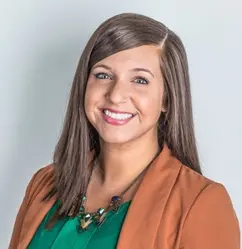Escrow: Meaning and How It Works
When you open a checking account, you trust someone else to handle your money. The same is true of an escrow account in real estate, with one major difference: The account holds both funds and paperwork for you and everyone involved in the transaction.
Escrow’s meaning is different depending on whether you’re buying a home or repaying a mortgage, and knowing the ins and outs of each type will help you protect your home investment.
- An escrow account is a financial account that’s managed by a neutral third party in a real estate transaction.
- There are two types of escrow accounts in real estate: one that’s used to help homebuyers and sellers manage costs during a purchase transaction, and one that’s used to help homeowners manage their ongoing costs, including property taxes and insurance.
- If you make less than a 20% down payment on a conventional loan or choose a government-backed mortgage program, your mortgage lender will likely require you to keep your tax payments and insurance premiums in escrow.
What is escrow?
In real estate law, the term “escrow” refers to a legal agreement in which a neutral third party handles documents and financial transactions between two or more parties. There are two types of escrow in real estate.
- A purchase escrow, related to buying or selling a home.
- A mortgage escrow, used to pay ongoing housing expenses like property taxes and homeowners insurance.
How does escrow work in a home purchase?
A purchase escrow helps manage all of the moving parts of a home sale. Buyers want to make sure all of the money they put into the purchase is accounted for, so they can close on the home without any issues. Sellers are concerned with profiting as much as possible from the sale, while also ensuring that they can transfer ownership of the home.
The purpose of a purchase escrow account is to:
- Confirm earnest money was received. Your earnest money is a percentage of the sales price you agree to pay upfront to show the seller you’re serious about buying the house. You agree to this amount in your contract. If you back out of the contract, the seller usually gets to keep your earnest money deposit. If the sale goes through, the money is applied to your down payment.
- Prepare paperwork to transfer homeownership. This includes legal documents that make you the official homeowner.
- Prepare mortgage loan paperwork. Your lender requires a signed loan package that records a lien on your house in exchange for lending you money for the purchase.
- Pay all fees related to the contract. This includes escrow disbursements for real estate commissions, lender fees, homeowners association (HOA) fees and any other costs related to your purchase contract.
- Refund your earnest money if you cancel. If an issue comes up with a home inspection or your mortgage application is denied, you can cancel the transaction and the escrow company will return your earnest money.
How does an escrow account work in a mortgage?
Escrow accounts ensure property taxes and homeowners insurance premiums are paid on time. They are required if you make less than a 20% down payment on a conventional loan, as well as on all government-backed mortgages.
The mortgage escrow account’s purpose is to:
- Maintain a balance high enough to pay your bills. The account needs to cover your property taxes and homeowners insurance premiums when they’re due, so you don’t have to pay out of pocket.
- Notify you of changes in the account balance. When your tax and insurance bills are paid, the lender must notify you of how much is left, and provide the dates of upcoming disbursements.
- Audit your account every year. Lenders conduct an annual escrow analysis to ensure the appropriate amount of money is in your escrow account. You’ll receive a refund if there’s too much money, or be given options for how to make up a shortfall.
Lenders collect enough to cover the cost of your taxes and insurance for the next year. They divide that amount by 12 and add it to your monthly mortgage payment. If the numbers are confusing, don’t worry: You’ll get a detailed breakdown of the escrow math on your closing disclosure before signing your final paperwork.
You’re not required to have an escrow account on a conventional loan if you make at least a 20% down payment. You’ll need to ask your mortgage lender for an escrow waiver to pay your housing expenses on your own. However, there may be a small fee if you choose this option.
Who manages an escrow account?
The who’s who of escrow varies depending on the type of account. When you buy a home, you generally work with an escrow agent or an escrow company. Escrow agents often work for the same title company that insures the title to your home.
Mortgage escrows are handled by loan servicing companies. Your escrow payments may be made to the same lender who closed your loan, or to a new company. Mortgage servicers are heavily regulated and have to provide accounting statements each year to show how your money is spent.
It’s important to know who to contact if there are issues with your purchase or mortgage escrow. The table below shows who’s responsible for what:
| Contact your escrow agent if: | Contact your mortgage servicer if: |
|---|---|
|
|
Homeowner insights on escrow accounts
My mortgage lender required me to have an escrow account, but I’m glad because I don’t have to worry about paying my property taxes or insurance all at once. It’s much easier on my wallet.
I like having an escrow account because I don’t have to keep track of timing or due dates for when to send my payments in. But be aware that your payment might change over time. Our mortgage payment went up by about $100 once after an annual escrow analysis and we had to increase the amount we pay monthly to cover it.
Pros and cons of escrow accounts
Pros
- Protects your earnest money. Without a purchase escrow account, there’s the risk that a seller could just take your money and run.
- Protects you from tax liens. A mortgage escrow account reduces the risk you’ll become delinquent on your property taxes, since your lender or servicer pays the bills on your behalf.
- Eliminates two bills from your to-do list. Your loan servicer is responsible for mortgage escrow paperwork, so you won’t have to keep track of it.
Cons
- Someone else controls the money. Getting your earnest money back if a deal falls through may involve extra steps.
- Interest isn’t typically earned on mortgage escrow accounts. You may be better off putting your money into short-term deposit accounts. Loan servicers usually aren’t required to pay interest on your funds, unless your state’s laws require it.
- Your monthly mortgage payment could change. Property taxes and homeowners insurance premiums usually rise over time, which could increase your monthly PITI payment.
Frequently asked questions
You own the money in your escrow account. Your escrow agent is simply in charge of holding onto it for you until it’s time to pay your property taxes and home insurance premiums on your behalf.
Yes, you can get escrow money back in a few circumstances:
- You pay off your mortgage loan
- You refinance your home loan
- Your lender determines that they collected too much money from you (often called a surplus) during your escrow analysis
Your lender will send any excess escrow funds back to you, along with a letter explaining the status of your escrow account.
View mortgage loan offers from up to 5 lenders in minutes




